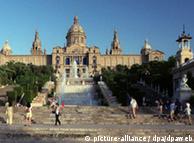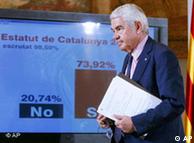
"No nation can, or should, hold dominance over another nation." Barack Obama
President Obama's statement has global implications. It applies universally, to all nations which remain under the domination of other nations. Here we feature the Kurds and the Catalans, but we might equally mention the Bretons, the Cornish, the Welsh, the Scots, the Galacians, the Sicilians, the Basques, the Flemish, the Armenians* and many other national groups which remain under the control of larger, more dominant nations. Many of these political inequalities have arisen as a result of former colonialism or arbitrary division when boundaries were created, or have resulted from one nation annexing another nation and incorporating it into its dominions (e.g. Wales).
According to the latest results of the unofficial poll in Catalonia it appears that 95% of the Catalan people want freedom from Spain.
*Armenia, like the majority of the former Soviet republics, suffers from the continuing influence of major foreign powers in its economic, financial, and political life. Despite its commitment to independence and sovereignty, it continues to be played like a pawn on the strategic chess board, in a modern version of the Great Game, between the Anglo-American powers in London and Washington, on the one hand, and certain circles in Moscow. Thirdly, and perhaps as a consequence of the first two factors, the national political leadership has not managed to articulate and pursue a long-term vision for the nation.
http://independentcatalonia.blogspot.com/
http://www.washingtonpost.com/wp-srv/inatl/daily/feb99/kurdprofile.htm
POLITICS | 13.12.2009
Catalans vote in symbolic independence referendum
The vote on Catalonian independence is not legally binding, but its backers hope that it will put pressure on the region's political parties to call for a real referendum on secession in the future.
Surveys have shown that a sizable minority in Catalonia would like to see the northeastern region, which includes Barcelona, Spain's second-largest city, granted independence beyond the considerable autonomy it already enjoys.
Polls opened in the early morning for some 700,000 people, including many of the region's immigrant population, who represent about 10 percent of Catalonia's population of seven million.
Catalonia accounts for about 25 percent of Spain's gross domestic product and has its own language and customs.
Sunday's vote also comes as Spain's Constitutional Court prepares to rule on the legality of the region's statute of autonomy. There are fears that a negative outcome of that decision could fuel further separatist demands.
The statute, approved by the Spanish parliament and endorsed by Catalan voters in a 2006 referendum, expanded the powers of the regional government.
Prime minister not concerned
Catalan regional elections must be held by the end of 2010 and any surge in separatist sentiments could be a serious problem for Spain's Socialist Prime Minister Jose Luis Zapatero. The premier put on a brave face on Friday, exclaiming that "these independence votes are going nowhere."
However, Uriel Bertran, one of the leaders of the pro-independence movement, said "this will be the beginning of an adventure towards self-determination."
Although opinion polls differ on the extent of support for independence in Catalonia, Sunday's poll is viewed as the next step in ratcheting up the autonomy drive. An initial vote in September held in the small town of Arenys de Munt ended with more than 96 percent in favor of independence.
gb/AFP/Reuters
Editor: Kyle James
The Kurdish Tragedy
The 25 million Kurds are the largest ethnicity in the world without a state of its own. Promised - but never granted- their own country after WWI, Kurds now live in parts of Turkey, Syria, Iraq, Iran, Armenia and Azerbaijan. They are almost universally despised for asserting their identity. The government of Turkey spends US$6 billion a year fighting its Kurdish separatists. Saddam Hussein's Iraq has tried to wipe out its four million Kurds altogether: Some 300,000 Kurdish civilians "disappeared" between 1983 and 1987. Then Iraq launched a religious war against them (complete with chemical weapons), razing 4,000 villages and killing another 100,000 Kurds. Many of those who survived are now starving, thanks to the UN's embargo against Iraq.
In Iran Kurds are not allowed to use their Kurdish names. In Turkey, speaking Kurdish even in private was a crime until 1991. Turkey continues to deny that Kurds have a separate ethnic identity - the official story is that Kurds are Turks who got lost in the mountains and forgot they were Turkish.
A Defector's Excuse
"My politics are very much in line with wanting a stronger Wales within a successful United Kingdom.
Plaid’s ultimate aim of independence for Wales puts this at risk. I argued against independence while a Plaid member. I was in a minority and my view was defeated. Plaid Cymru does not believe in the United Kingdom, or developing a strong Wales within that union."
According to the Chairman of Plaid Cymru, Moh. Asghar never raised the independence issue at any of the meetings he attended and his view, never expressed, was not defeated.
Thus Mr Aghar never "tried to change Plaid Cymru from the inside."
It follows that his defection is entirely for the sake of self-advancement, as the Tories rejected him before he decided to join Plaid and are now willing to accept him following his defection. They may well live to regret it.




1 comment:
Great to read the regular blogs from Jill Evans who is observing the Catalan referendum. See them on: cwmrhondda.com
Post a Comment